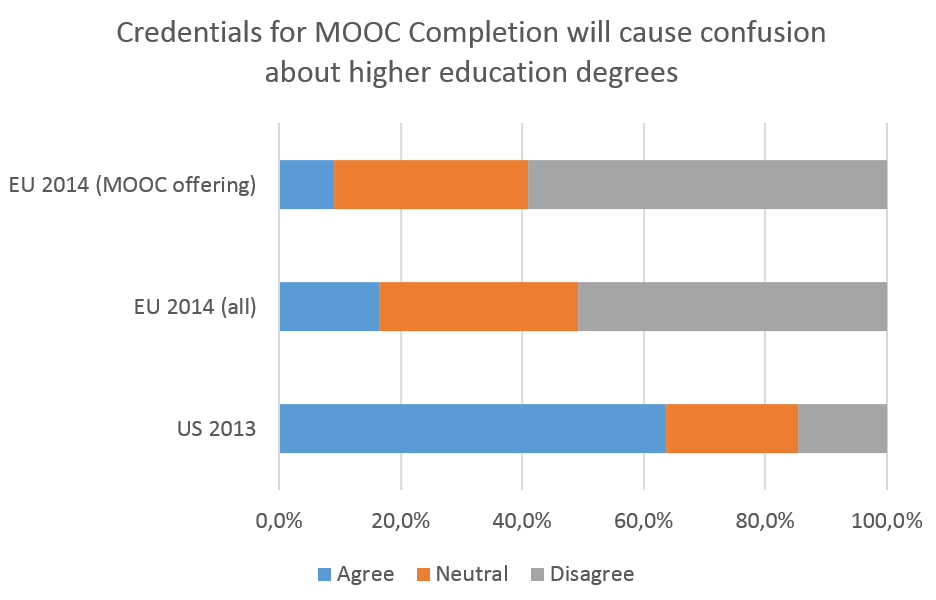By Darco Jansen, Programme Manager at EADTU
EADTU – coordinating the HOME project – recently published a report on Institutional MOOC strategies in Europe. The report showcases data on the perception and objectives of European higher education institutions on MOOCs and the main drivers behind the MOOC movement. In addition, the report draws a comparison between similar studies conducted in the United States in 2013 and 2014.
This report observes substantial differences between US and EU education institutions. Not only are European institution more involved in MOOCs than the US, and the number of European institutions with MOOC involvement is rising, but MOOCs are also perceived as a sustainable method for offering courses in Europe. It seems that in Europe the institutions are increasingly developing a positive attitude towards MOOCs and have positive experiences regarding the added value of MOOCs.
One topic that was highlighted is the degree of accreditation when it comes to MOOC valoration. The report compares responses between US-institutions and Europe on the following question: “Credentials for MOOC completion will cause confusion about higher education degrees?” The results are shown in figure below:
A large majority of European higher education institutions disagree on the claim that credentials for MOOC completion will cause confusion about higher education degrees while a majority in the US agrees. Therefore Europe does not fear credentials for MOOC completion.
The dispersed opinions between US and EU institutes can most likely be explained by the embedded ECTS framework in Europe, which provides a sound base for recognition of credentials across institutions and countries. Institutions in Europe that already offer MOOCs are more confident in giving credentials for MOOCs. In addition a EUA study indicates a growing pressure on European institutions to recognise learning outcomes and award credits both for their own MOOCs and those delivered by other institutions. Additionally, recognition of non-formal learning is a formally declared EU-strategy.
The ECO project already offers MOOCs with formal ECTS credits, i.e. those ECO sMOOCs not only provide a non formal certificate (certificate of participation of (verified) certificate of completion) but also offer a formal credit that is validated as a formal degree. In a parallel post on the ECO Learning Blog, the possible impact ECTS accreditation on the need of tertiary education is discussed.
The ECO sMOOC starts 30th of March 2015 and will offer 3 ECTS credits. This is a course on how to design MOOCs and will be offered in six different languages. You can register at here.
This publication is licensed under a Creative Commons Attribution 4.0 International License.



